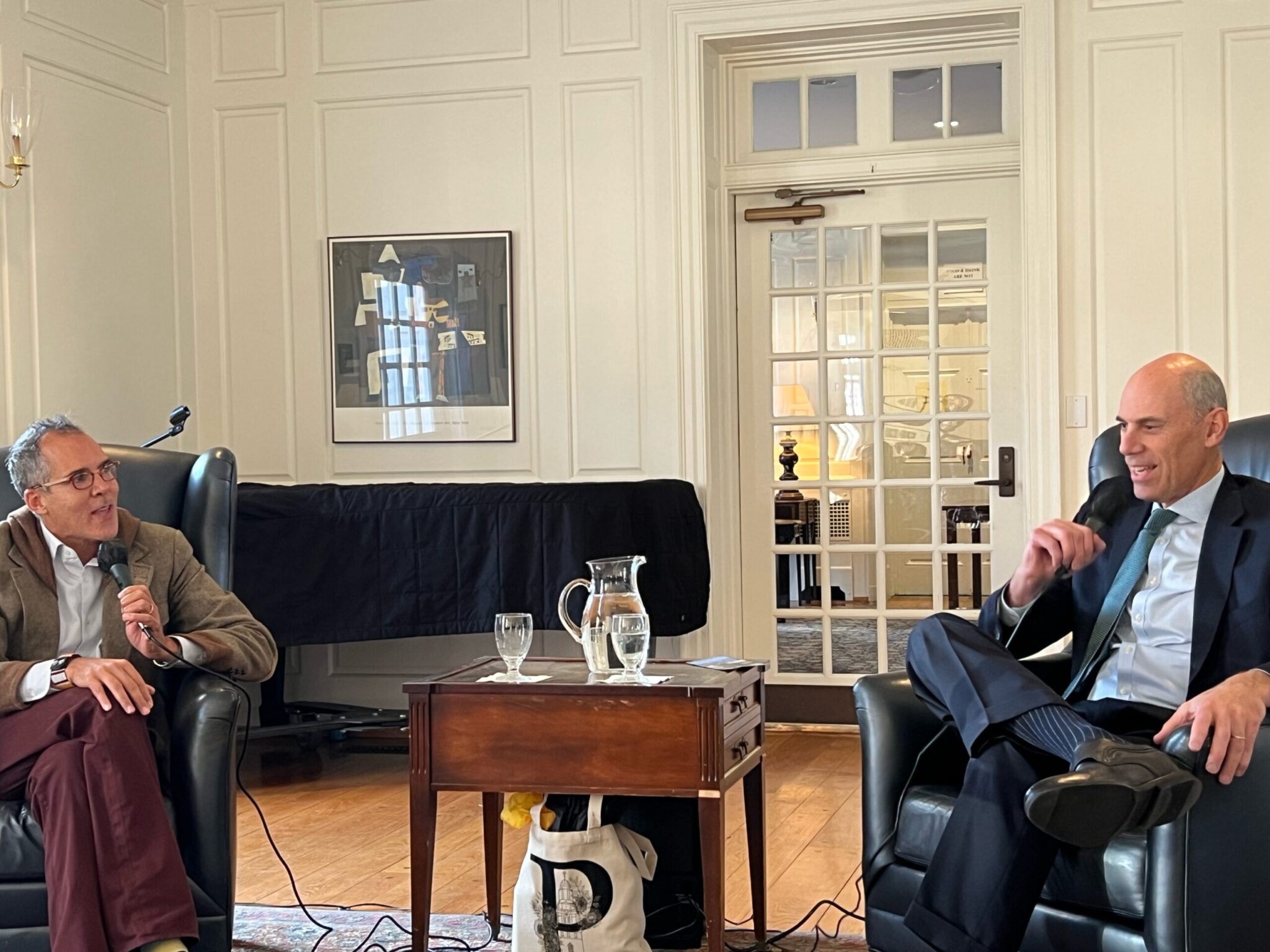Judging January 6th: Chief Judge talks insurrection, precedent at College Tea
James E. Boasberg, who serves as the chief judge of the U.S. District Court for the District of Columbia, discussed his role during the events of the Jan. 6 attack on the U.S. Capitol at a Thursday event hosted by Pierson College.

Adam Walker, Contributing Photographer
James E. Boasberg ’85 LAW ’90, Chief Judge of the U.S. District Court for the District of Columbia, spoke at a Pierson College Tea on Thursday evening to discuss the Jan. 6 insurrection, which upended U.S. politics two years ago.
The event, titled “The U.S. District Court in the Shadow of January 6th,” took place in the Pierson College common room. Boasberg engaged in a discussion with Yale Law School professor James Forman Jr. LAW ’92; Forman asked Boasberg questions about his role as a judge overseeing cases involving individuals who stormed the U.S. Capitol.
On Jan. 6, 2021, a mob of supporters of then-President Donald Trump breached the United States Capitol in an attempt to overturn the results of the 2020 presidential election. This unprecedented attack led to the evacuation of lawmakers, multiple deaths and injuries and significant damage to the Capitol building.
“On Jan. 5, all the judges were notified that there would be protests tomorrow,” Boasberg said at the event. “[On Jan. 6], someone told me to turn on my TV, and that’s when I spent the rest of my day like most of America transfixed and just sort of shocked about what we were seeing, but I didn’t think for a minute that these people would be arrested and they would all be in my court.”
Boasberg noted that given the exceptional nature of the event, there was initial uncertainty regarding the charges that would be brought against those involved in the insurrection. It remained unclear until the Justice Department collaborated with the FBI to determine how they would proceed with charging the thousands of individuals who had gathered outside the U.S. Capitol, as well as those who had entered the building.
Boasberg emphasized that the critical questions that emerged were about the number of individuals to be charged and the specific criteria for determining who would be included.
Forman then asked about the challenges the storming posed in terms of making judgments when there were no legal precedents to bring to bear.
“Prosecutors often, like other people in our system, reason with precedent,” Forman said. “But, there is no precedent here.”
Boasberg clarified that, unlike a murder case, which has statutes that are clearly applicable, the unique circumstances surrounding the Capitol storming lacked applicable statutes. According to Boasberg, Congress had not anticipated a scenario where thousands of people would storm the Capitol, leaving prosecutors in a challenging position to determine the appropriate charges for those involved.
However, Boasberg said that some of the charges that they landed on were assaulting a federal officer and sedition, which is the crime of creating a revolt. Boasberg said that as of now, prosecutors have already charged around 1,300 people. They expect to charge an additional 35 people per month through 2024, totaling approximately 500 additional people.
“Right now where they are drawing the line is if you went into the Capitol or assaulted people outside,” Boasberg said. “They’re [no longer] going to charge you if you didn’t go in or you didn’t assault anyone.”
Boasberg also mentioned that in his district, where cases are randomly assigned to a cohort of around 20 judges, each judge ended up with approximately 65 defendants over whose cases to preside.
Following the talk, attendees had the opportunity to ask Boasberg questions directly.
“I thought it was a really eye-opening discussion about the unprecedented nature of January 6th,” attendee Griffin Richie ’25 told the News. “Not just concerning our democracy, but also concerning our legal system.”
Boasberg graduated from Yale Law School the same year as Supreme Court Justice Brett Kavanaugh ’87 LAW ’90.







